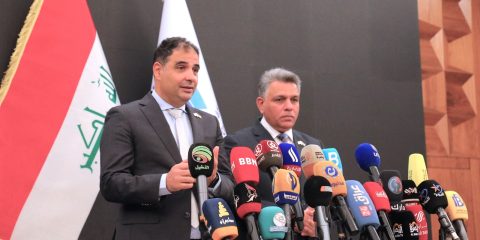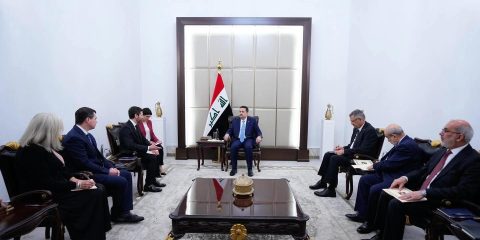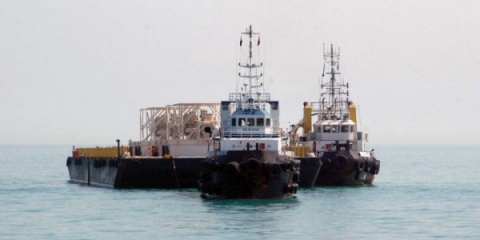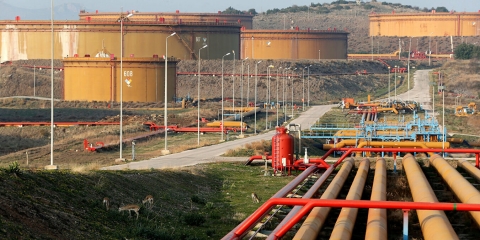Kurdish-Shia relations strained
Talabani's Kirkuk statement strains Kurdish-Shia relationsThere are basically two ways of looking at the relationship between the dominant Shiite and Kurdish political parties in Iraq since 2003, writes Iraq analyst Reidar Visser on the blog Iraq and Gulf Analysis.
One view emphasises converging interests – such as constructing a black and white narrative of the country’s past as “Sunni Arab discrimination” against everyone else; systematically playing up ethno-sectarian identities in politics; distributing leadership posts not on the basis of merit but according to ethno-sectarian quotas; and generally keeping any tendencies of the re-emergence of a strongman ruler in Baghdad in check.
The contrarian position is to emphasise differences between the two, such as the tendency of many Shiites to maintain at least a façade and rhetoric of Iraqi nationalism (even if recruitment patterns may well be sectarian in practice), hold on to the vision of a mostly centralised state ruled by a strong prime minister in Baghdad, and reject the multiplication of new federal entities south of Kurdistan as well as Kurdish moves to annex additional territories outside the ones recognised as part of the Kurdistan Regional Government in the Transitional Administrative Law of 2004.
Key developments since 2005 present a mixed scorecard as far as these two competing perspectives are concerned. The new constitution of 2005 itself was of course basically the creation of the Shiite and the Kurdish parties, but there are two trends within that constitution. Some clauses favour the Kurdish view of unlimited decentralisation, which at the time resonated with the views of at least one Shiite party (SCIRI). The very limited powers of the central government and the award of residual powers to both governorates and federal regions in article 115 point in this direction, as do the provisions for creating new federal regions south of Kurdistan in what could theoretically turn in to a cycle of perpetual federalisation. On the other hand, other constitutional articles such as 121–122 point towards a more centralised form of government south of Kurdistan. Similarly, the constitutional arrangements for the end of the transitional veto-wielding presidency after the first five-year parliamentary cycle foreshadowed a potentially strong prime minister with a centralist and Iraqi nationalist language emerging in the future. Later on, the failure of the Shiite and Kurdish parties in 2007 – arguably at the point of their greatest influence – to amicably agree between themselves on an oil law and the disposition of the disputed city of Kirkuk highlighted the extent to which centralist ideals continued to make themselves felt in the Shiite camp, at the expense of Kurdish interests.
At one point between 2008 and 2009 it looked as if Nuri al-Maliki was making decisive moves towards establishing himself as the nationalist centralist enabled by the 2005 constitution, again to the detriment of the Kurds. But with the re-emergence of sectarian politics in the autumn of 2009, the Shiites refrained from re-entering into conflict with the Kurds over Kirkuk during the debate of the elections law. More recently, as Maliki emerged with a poorer result than he had hoped for in the March 2010 parliamentary elections, he saw no other option but to turn to the Kurds for support and has recently made conciliatory moves regarding Kurdish oil exports.
It is interesting, therefore, that the latest statement on Kirkuk by Iraq’s president, Jalal Talabani, a prominent Kurdish leader, seems to have once more created strains in the Shiite–Kurdish relationship. Talabani said Kirkuk was the “Jerusalem of Kurdistan”. This prompted strong reactions from Iraqis south of Kurdistan – Sunnis and Shiites alike – who objected to the connotations of “occupation” assigned by Talabani to the current situation (in which Kirkuk at least formally remains part of the central-government domain) and the concomitant discourse of an ethnic “liberation campaign” that would appeal to ethno-racial Kurdish sentiment to annex the area to Kurdistan.
Significantly, today there is a strong condemnation of Talabani’s statement by Maha al-Duri, a Sadrist leader. In a press statement also published on her website, she says that Talabani’s statement was “irresponsible”. Moreover, she went on to escalate the issue by saying that if Talabani considered Kirkuk his Jerusalem, it would “force Iraqis to consider Kurdistan their Jerusalem”. She seemed to modify that perspective somewhat when she went on to say that all of Iraq should be considered “occupied” (by the Americans) and that Talabani should understand the need for US forces to leave.
It is significant that this statement is not coming from the usual suspects. On Kirkuk and Kurdish issues more broadly, certain people close to Maliki are in the habit of making strong statements apparently without being able to influence the overall direction of policy to a significant extent. This includes Turkmen leaders like Abbas al-Bayati. Duri, on the other hand, is considered a high-ranking politician among the Sadrists who unexpectedly fell silent during the debate (or, more correctly, the non-debate) on Kirkuk during the passage of the revised election law in parliament in autumn 2009. A 38 year-old mother from Baghdad who graduated top of her class from Baghdad’s leading veterinary college in the late 1990s, Duri stands out as one the few female deputies who has asserted herself beyond women’s affairs.
Duri’s statements are not an isolated case either. Today in parliament, an interesting echo was produced by Mansur al-Tamimi, a Basra deputy from State of Law, who called for expanded powers for the governorates, but “with a strong supervisory role for the prime minister”. This prompted a Kurdish outburst and charges that Tamimi had failed to recognise the “federal” character of Iraq. Parliament speaker Usama al-Nujayfi of Iraqiyya duly sustained the objection and confirmed the standard ittihadi (“federal”) adjective for describing Iraq. But among the Shiites, those who vocally protest against “excessive centralisation in Iraq” now mostly seem to belong to ISCI, which after all is a small minority. A more immediate and material dimension to the whole affair has been provided by the recent influx of Kurdish peshmerga troops into Kirkuk, presumably to deal with potential disturbances, but a breach of past protocol according to which they have stayed away from the city.
Prime Minister Maliki himself was present in parliament to give an update on the progress of the government and its programme. He sounded somewhat exhausted when he finally uttered the mandatory “federal” word towards the end of his speech. The Kurds may remain his best friend in troubled times, but at a juncture when the nationalist Iraqiyya is remarkably silent on Kirkuk (they are still seeking the good offices of the Kurds in their dealings with Maliki and have not said much except from some criticism from members who are themselves from Kirkuk), he is probably increasingly aware of the challenge from Iraqi Shiites who prefer to speak in the name of the centralist state.




